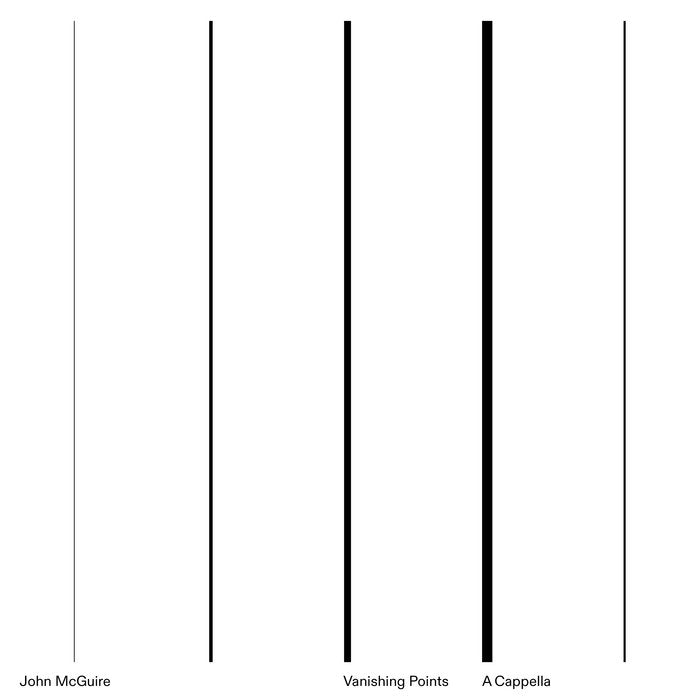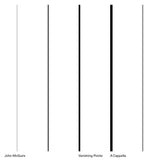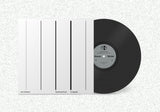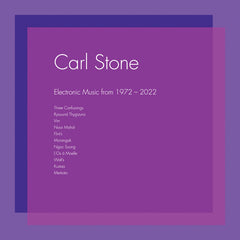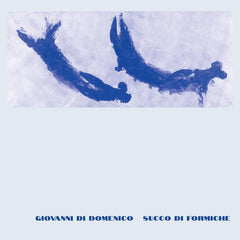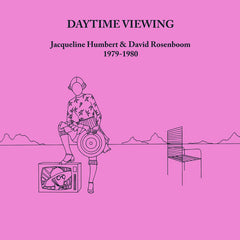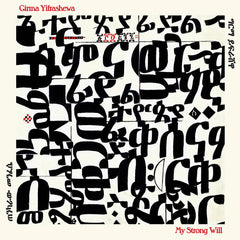John McGuire // Vanishing Points / A Cappella LP
- Availability:
This is a reissue record released in October 2023 by the great American minimalist artist John McGuire.
"Vanishing Points" (1985-1988) and "Contains two songs from "A Cappella" (1990-1997). DL code included.
Below is a commentary by the label.
"With Pulse Music, composed in the mid-1970s, composer John McGuire created a unique interpretation of European Serialism. John McGuire was a student of Karlheinz Stockhausen, Krzysztof Penderecki, and Gottfried Michael König. moved to Cologne, Germany in 1970 and became involved with the world's most advanced electronic music studio at the West German Radio (WDR) in Cologne. Like Stockhausen, John McGuire also allowed his musical imagination to , they found themselves both constrained and inspired by the technology available to them.
A conversation with sculptor Hans Karl Bourguef led John McGuire to look beyond the horizon and into infinite space. For Vanishing Points (1985-1988), John McGuire used a completely digital setup for the first time.A digital sequencer, eight Yamaha DX-8 synthesizers, and a Studer 7-track digital tape recorder.This work was conceived as a ``sequel'' to the ``Pulse Music'' series, but it was also a step forward from the ``Pulse Music'' series.While the "Pulse Music" series adopted a steady flow of pulses,On 'Vanishing Points', layers of pulses accelerate and decelerate each other, adding to the rhythmic complexity.
In ``A Cappella'' (1983-1990), written for his wife, soprano Beth Griffith, best known for Morton Feldman's ``Three Voices,'' recorded in 1997.John McGuire's musical exploration continues.He created a four-voice choir using samples and arranged them into interacting parts.His compositions were challenged by the organic nature of the human voice compared to the precision of synthesizer sounds.This process required intensive editing and negotiation between the "material" and the "original concept."Such negotiations apply to both the composition of a single song and a work spanning two decades. "
Labels and other worksplease use this form. ///Click here to see more Unseen Worlds releases available at Tobira.
----------------------------
12" black vinyl. Includes DL code.
Tracklist:
- Vanishing Points 26:00
- A Cappella 23:30
Unseen Worlds:
"In his “Pulse Music” compositions of the mid-1970s, composer John McGuire forged a unique interpretation of European serialism. A student of Karlheinz Stockhausen, Krzysztof Penderecki and Gottfried Michael Koenig, McGuire moved to Cologne, Germany in 1970, where he became associated with the world-leading Studio for Electronic Music at Westdeutscher Rundfunk (WDR) in Cologne. Like Stockhausen, McGuire found his musical imagination both constrained and inspired by the technology that was available to him.
A conversation with sculptor Hans Karl Burgeff led McGuire to think beyond the horizon and into limitless space. For “Vanishing Points” (1985–1988), McGuire used an entirely digital set-up for the first time: a digital sequencer, eight Yamaha DX -7 synthesizers and a Studer 24-track digital tape recorder. The piece was conceived as a “sequel” to the Pulse Music series, but also a step forward from it. except the Pulse Music pieces had employed steady streams of pulses, with Vanishing Points McGuire employed pulse layers that accelerate or decelerate against one another, vastly increasing the resulting rhythmic complexity.
McGuire's exploration of music technology continued in “A Cappella” (1990–1997), written for his wife, the soprano Beth Griffith, known for her recording of Morton Feldman's “Three Voices” made in 1983. Using samples, he created a four-voice choir of voice samples and arranged them into interacting parts. The composition faced challenges due to the organic nature of the human voice compared to the precision of synthesized sounds. This process involved extensive editing and a negotiation between the "material" and the "original conception". This sort of negotiation applies as much to the composition of a single piece as it does to the work of two decades. "
Artist: John McGuire
Label: Label: Unseen Worlds
This is a reissue record released in October 2023 by the great American minimalist artist John McGuire.
"Vanishing Points" (1985-1988) and "Contains two songs from "A Cappella" (1990-1997). DL code included.
Below is a commentary by the label.
"With Pulse Music, composed in the mid-1970s, composer John McGuire created a unique interpretation of European Serialism. John McGuire was a student of Karlheinz Stockhausen, Krzysztof Penderecki, and Gottfried Michael König. moved to Cologne, Germany in 1970 and became involved with the world's most advanced electronic music studio at the West German Radio (WDR) in Cologne. Like Stockhausen, John McGuire also allowed his musical imagination to , they found themselves both constrained and inspired by the technology available to them.
A conversation with sculptor Hans Karl Bourguef led John McGuire to look beyond the horizon and into infinite space. For Vanishing Points (1985-1988), John McGuire used a completely digital setup for the first time.A digital sequencer, eight Yamaha DX-8 synthesizers, and a Studer 7-track digital tape recorder.This work was conceived as a ``sequel'' to the ``Pulse Music'' series, but it was also a step forward from the ``Pulse Music'' series.While the "Pulse Music" series adopted a steady flow of pulses,On 'Vanishing Points', layers of pulses accelerate and decelerate each other, adding to the rhythmic complexity.
In ``A Cappella'' (1983-1990), written for his wife, soprano Beth Griffith, best known for Morton Feldman's ``Three Voices,'' recorded in 1997.John McGuire's musical exploration continues.He created a four-voice choir using samples and arranged them into interacting parts.His compositions were challenged by the organic nature of the human voice compared to the precision of synthesizer sounds.This process required intensive editing and negotiation between the "material" and the "original concept."Such negotiations apply to both the composition of a single song and a work spanning two decades. "
Labels and other worksplease use this form. ///Click here to see more Unseen Worlds releases available at Tobira.
----------------------------
12" black vinyl. Includes DL code.
Tracklist:
- Vanishing Points 26:00
- A Cappella 23:30
Unseen Worlds:
"In his “Pulse Music” compositions of the mid-1970s, composer John McGuire forged a unique interpretation of European serialism. A student of Karlheinz Stockhausen, Krzysztof Penderecki and Gottfried Michael Koenig, McGuire moved to Cologne, Germany in 1970, where he became associated with the world-leading Studio for Electronic Music at Westdeutscher Rundfunk (WDR) in Cologne. Like Stockhausen, McGuire found his musical imagination both constrained and inspired by the technology that was available to him.
A conversation with sculptor Hans Karl Burgeff led McGuire to think beyond the horizon and into limitless space. For “Vanishing Points” (1985–1988), McGuire used an entirely digital set-up for the first time: a digital sequencer, eight Yamaha DX -7 synthesizers and a Studer 24-track digital tape recorder. The piece was conceived as a “sequel” to the Pulse Music series, but also a step forward from it. except the Pulse Music pieces had employed steady streams of pulses, with Vanishing Points McGuire employed pulse layers that accelerate or decelerate against one another, vastly increasing the resulting rhythmic complexity.
McGuire's exploration of music technology continued in “A Cappella” (1990–1997), written for his wife, the soprano Beth Griffith, known for her recording of Morton Feldman's “Three Voices” made in 1983. Using samples, he created a four-voice choir of voice samples and arranged them into interacting parts. The composition faced challenges due to the organic nature of the human voice compared to the precision of synthesized sounds. This process involved extensive editing and a negotiation between the "material" and the "original conception". This sort of negotiation applies as much to the composition of a single piece as it does to the work of two decades. "
Artist: John McGuire
Label: Label: Unseen Worlds

